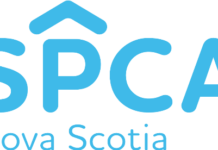
HALIFAX: Beginning Feb. 4, the province has announced that Nova Scotians enrolled in Pharmacare programs will begin switching to a biosimilar version of certain biologic drugs, including some insulins and medications used for treating Crohn’s disease and rheumatoid arthritis.
Biosimilars have been used in Pharmacare programs in Nova Scotia since 2016, when the first biosimilar version of a drug was added to the list of approved drugs. However, many patients remain on their original higher-cost biologic versions.
“The evidence is clear that biosimilars are a safe and effective form of drug therapy for many patients,” said Michelle Thompson, Minister of Health and Wellness. “If we’re able to provide the same high-quality treatment to our patients for lower cost, it’s our duty to do so.
“The cost savings from this change will be reinvested in healthcare, meaning even more people will get the care and treatment they deserve.”
The Nova Scotia biosimilar initiative follows similar efforts elsewhere in Canada. Tens of thousands of Canadians have safely switched to a biosimilar as part of those initiatives. They are also used extensively in Europe, where countries have had over 15 years of experience with biosimilars.
Pharmacare beneficiaries will have 12 months to work with their healthcare providers to switch to the biosimilar version of their drug. The policy change involves certain insulins, used to treat diabetes, as well as drugs that are used for arthritis, inflammatory bowel disease and psoriasis.
A biologic is a drug manufactured with living organisms such as yeasts or proteins. A biosimilar drug is a highly similar but less expensive version of the original biologic medication, known as an originator drug.
Much like generics, biosimilar versions of drugs become available when the original manufacturer of a biologic drug no longer has patent protection. Other manufacturers are then able to produce the same drug, making the same therapy available at a lower cost.
Health Canada approves biosimilars using rigorous regulatory standards for quality, efficacy and safety, deeming them to be as equally effective as the relevant biologics.
Switching to biosimilars where they are available will save the Province an estimated $13 million annually once fully implemented. Additional savings are expected as more biosimilars become available in Canada.
Nova Scotia developed this policy after consultation with doctors, prescribers and patient advocacy groups. In very specific circumstances in which the patient is not able to transition to the biosimilar version, the prescriber can request an exemption to continue coverage of the existing product.
Quotes:
“Annual spending on brand-name biologic medications continues to rise dramatically for public drug plans in Canada. Thirty-eight Health Canada-approved biosimilar biologics are now available. Arthritis Consumer Experts congratulates the Nova Scotia government on today’s announcement that will help ensure continued reimbursement coverage for patients who transition to a biologic biosimilar. Based on the experience in British Columbia, Alberta, New Brunswick, Quebec, and the Northwest Territories, where patients have already safely transitioned, we encourage the Government of Nova Scotia to work with chronic disease communities like ours to reinvest biosimilars savings in improving sustainability and adding new therapies for public drug plan beneficiaries.”
– Cheryl Koehn, Founder and President, Arthritis Consumer Experts
Quick Facts:
— about 5,100 people in Nova Scotia Pharmacare programs are currently on biologics that will need to be switched; more than 3,600 are using specific insulins that have biosimilar versions available and more than 1,400 people are using other biologic drugs
— about 3,900 patients enrolled in Pharmacare programs are already using biosimilar versions of medications
— other jurisdictions that have switched from originator biologics to biosimilars are British Columbia, Alberta, Quebec, New Brunswick and Northwest Territories
— specific originator drugs that will be switched are Humira, Enbrel, Remicade, Lantus, Humalog, NovoRapid and Rituxan
— patients currently taking biologics will need to switch to the biosimilar version by February 3, 2023
Additional Information:
Information for patients about the Nova Scotia biosimilar initiative: https://novascotia.ca/dhw/pharmacare/information-for-patients-about-biosimilars.asp
Information for prescribers about the Nova Scotia biosimilar initiative: https://novascotia.ca/dhw/pharmacare/information-for-prescribers-about-biosimilars.asp
Nova Scotia Pharmacare Programs: https://novascotia.ca/dhw/pharmacare/nova-scotians.asp
Health Canada biosimilar biologic drugs in Canada: Fact Sheet: https://www.canada.ca/en/health-canada/services/drugs-health-products/biologics-radiopharmaceuticals-genetic-therapies/applications-submissions/guidance-documents/fact-sheet-biosimilars.html
Biosimilar biologics in Canada – What inflammatory arthritis patients need to know: https://jointhealth.org/pdfs/BiosimilarsinCanada_September_EN.pdf




































